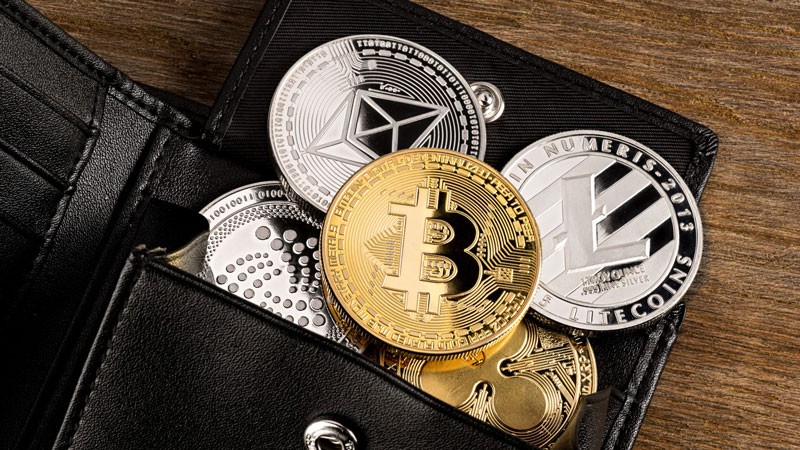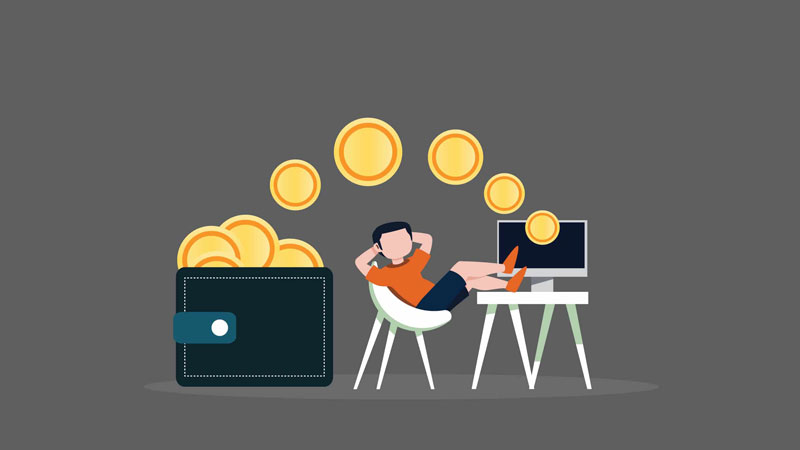If you are planning on getting some crypto, before you decide which currencies you would like to invest in, you will have to set up a crypto wallet for yourself.
The wallet is basically like your portfolio for crypto, and it comes with a private key that allows only you to access its contents. While the main idea of the wallet is to store your crypto, there are different uses for it, such as sending cryptocurrencies to other users or receiving them.

©Bitcoinist
How do crypto wallets work?
Crypto wallets come in either software or hardware form, and each one has different functions from the point of accessing your cryptocurrency safely.
One of the essential things to note about a crypto wallet is that it does not hold any cryptocurrency. Instead, it contains information known as private and public keys necessary to do crypto transactions. The cryptocurrency is stored on a blockchain a sort of digital ledger.
What is a public key?
These keys work very similarly to your bank account number. Each public key is a string of random numbers which can be shared with someone without compromising your wallet. When you give this key to someone, they can send you cryptocurrency.
What is a private key?
Unlike public keys, these keys are not meant to be shared with anyone.
You can use this key to access the cryptocurrency on a blockchain, so if you accidentally give it to someone, you just gave away all the crypto in your wallet.
How can you send money from your crypto wallet?
Doing this is relatively easy, as all you have to do is receive the private key or wallet address from the person you wish to send some crypto to. However, if you are trying to send an NFT from a wallet that supports NFTs to a wallet that does not, sometimes that NFT could be lost in the process entirely.

© publish0x.com
Crypto wallet types
There are many types when it comes to crypto wallets, but the most popular ones are hosted wallets, non-custodial wallets, and hardware wallets.
Hosted wallets
What makes hosted wallets great is that they are effortless to set up and easy to use. They are called hosted wallets because they are “hosted” directly on a crypto exchange. They are also sometimes called “exchange wallets” because of that. Coinbase or Kraken are good examples of hosted wallets, as you have probably purchased cryptocurrency on one of those exchange platforms.
The hosted wallet holds onto your private key for you, which is why it is a risky kind of wallet since it can be hacked as the information is online. It is also not rare that a hosted wallet does not support NFTs. Something positive about these wallets is definitely where you can recover your password if you lose it.
Non-custodial wallets
If you do not want third-party involvement like crypto exchange platforms, these are the wallets you want. These are software wallets that offer a lot of freedom compared to hosted wallets. You can buy NFTs or stake your crypto. However, since you are the one in control of the wallet completely, that means that you will have to take care of your private key by yourself, and you will not be able to recover the crypto if you lose it.
Hardware wallets
Another name for these wallets is “cold wallets.” They are physical devices that look very similar to a USB stick. The private key, in this case, is stored on that physical device, which can be both a blessing and a curse if you lose the device. However, because things are stored on a physical device, many consider it the peek of crypto wallet security.
If you plan to get a hardware crypto wallet, you should probably get one that either Ledger or Trezor produces. Both of these companies make great hardware wallets, but you will have to keep in mind that they can be a bit pricey.
In some cases, you might find a hardware wallet sold on a second-hand market or by an unverified seller for a smaller price than the high-quality ones, but we strongly encourage you to avoid such transactions. It is much better to invest a bit more into a good wallet than lose all of your crypto.
How to set up a crypto wallet?
It depends on what kind of wallet you are setting up, but you will have to give personal information and set up a password in most cases. In some cases, the password will also be given to you in the form of a seed phrase. The ones that do just that non-custodial crypto wallets, as you do not have to provide any private information to these either.
How to choose the best crypto wallet?
This is a tricky question, as it depends on what you are going to use it for. For example, if you plan to use crypto for esports, you should go for a wallet that supports the game you are looking to play competitively. In general, one of the best crypto wallets for gaming is MetaMask, as it has support for all kinds of games.
Usually, it is a good idea to spread out your crypto across a couple of different wallets, which, to be fair, you might be doing anyway, depending on what you are planning to do with your crypto. A crypto game or an NFT marketplace rarely supports all wallets out there.
Because of that, there is a high chance you will end up with a couple of wallets and a couple of private keys or seed phrases. On our closing words on crypto wallet explained, we would like to advise you to write down your seed phrases or private keys on a piece of paper; you will thank us later.
























 EN Global
EN Global  BR Português
BR Português